Some users reported that their computer’s sound stopped working completely when they installed and updated Windows 11/10. This issue comes with an error message: “No audio input device found.” If you are facing such an audio issue on your computer, then this tutorial may help you resolve the issue.
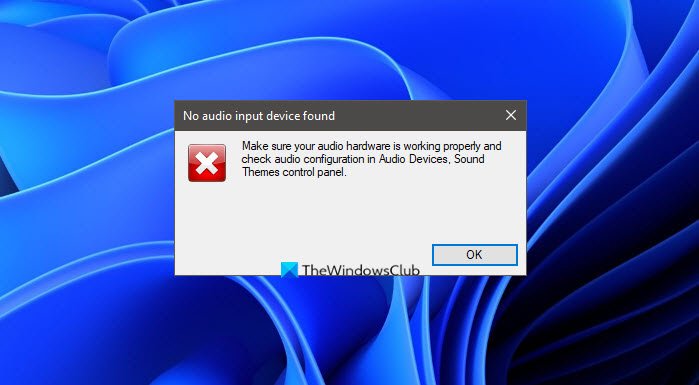
No audio input device found on Windows 11
If you’re experiencing this problem on Windows 11/10, then follow the below suggestions to fix it:
- Restart your computer
- Run the Audio Troubleshooter
- Update the Sound driver
- Get the new driver and install it
Let’s now see them in detail:
1] Restart your computer
An audio device error can occur when hardware configuration is modified while Windows is being loaded. To avoid this problem, you mustn’t remove or attach peripheral devices while your computer starts.
Once your computer has fully loaded, you can perform these tasks. If the error persists, restarting your computer may fix it.
Read: Audio Input and Output device uninstalled upon restart.
2] Run the Audio Troubleshooter
Windows 11/10 comes with a built-in diagnostic program called Audio Troubleshooter that can identify and fix any sound-related issues. It has been reported by many users that after running this tool, they were able to resolve the issue. Therefore, if restarting the computer fails to resolve the problem, you can run the troubleshooter.
- To get it started, open the PC settings first. You can do this by pressing Windows + I on your keyboard.
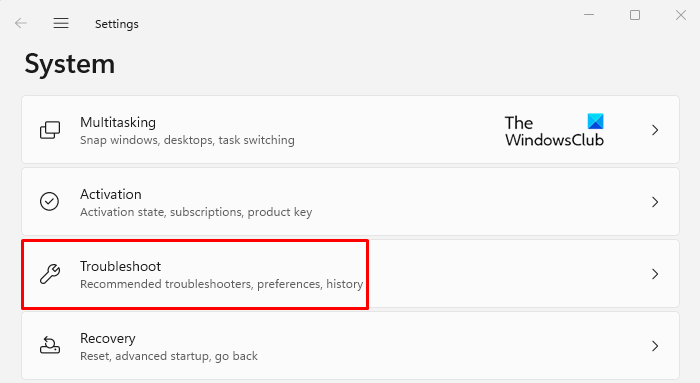
- Go to the System section, scroll down and click the Troubleshoot option.
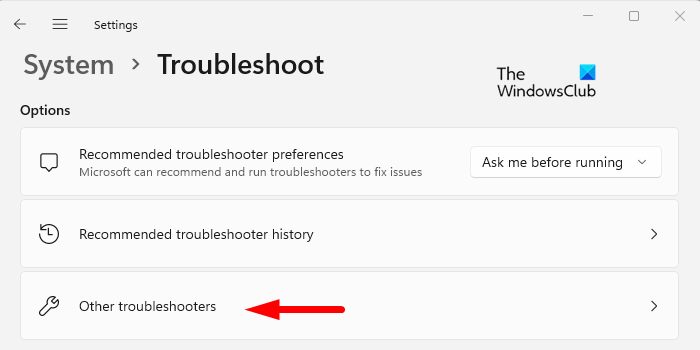
- Select Other troubleshooters from the Troubleshoot menu.
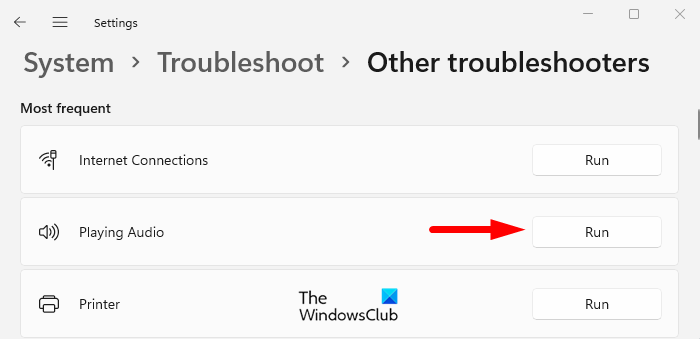
- You will see the option of Playing Audio. Click on Run to begin troubleshooting audio.
- If there are problems with the device, it will fix them automatically.
Hopefully, that will solve the issue. If that doesn’t work, try the next solution.
Read: No device drivers were found error during Windows Setup.
3] Update the Sound driver
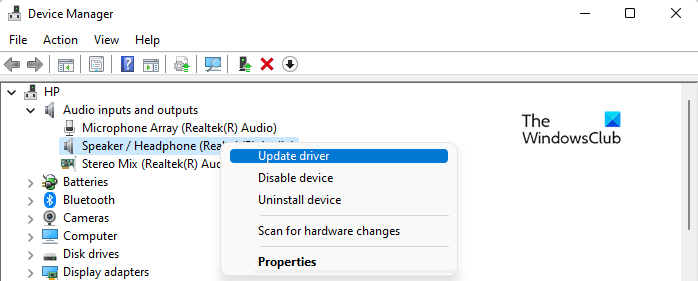
The next thing you can try is updating the sound driver. Here is how you do that:
- Open the Run dialog box using the Windows + R keyboard shortcut.
- In the search box, type devmgmt.msc and press Enter to open the Device Manager.
- Locate and expand Audio inputs and outputs.
- Right-click on the audio driver and choose Update driver from the menu.
- The next page gives you the option to either search it online or browse it from your computer.
- By selecting Search automatically for drivers, Windows will find and install the best driver for your device.
- You will then need to follow the on-screen guidelines to complete the process.
- However, if you want to install the driver manually, select Browse my computer for drivers and then go through the process.
Read: No Audio Output Device is Installed.
4] Get the new driver and install it
This solution requires you to download and install the new driver through Windows Update. Here is how to do so:
- First, open Windows Settings. For this, right-click on the Start button and select Settings from the menu.
- You will then need to select Windows Updates from the left pane of the screen.
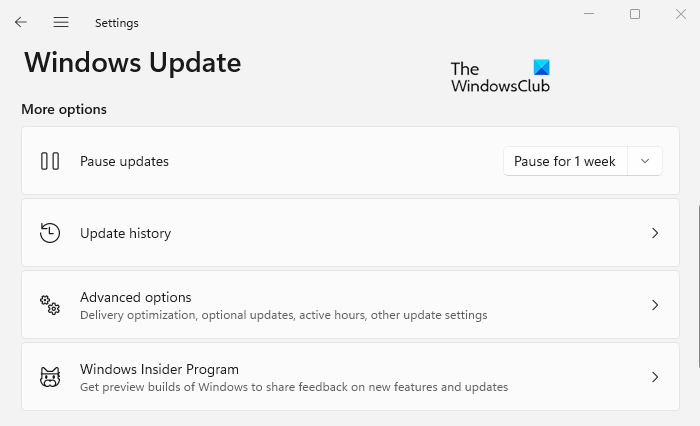
- In the More options section, click on Advanced options.
- Next, scroll down to the Additional options section.
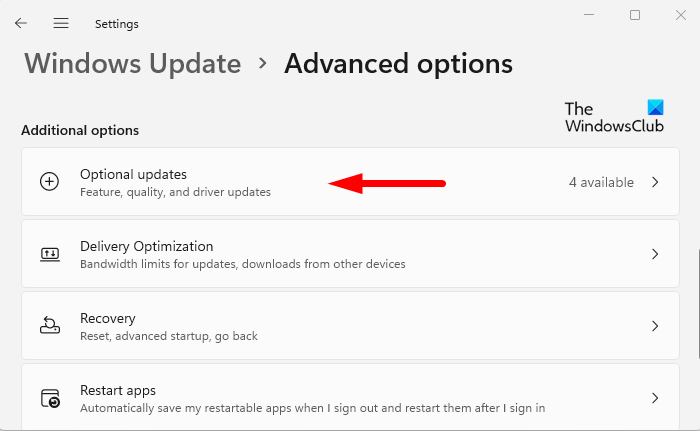
- You will see Optional updates here, click on it.
- Check the list of Driver updates to see if the audio driver is there.
- When you find the audio driver, check the box next to it and click on “Download and install.”.
Once the driver has been installed successfully, see if the problem has been resolved.
I hope this helps.
Read: Realtek audio driver crashing randomly
Why is there no sound on my PC?
You may experience sound problems on your computer due to a number of factors, such as speakers, software, audio drivers, or sound card. Most Windows sound-related problems are caused by a misconfiguration that can be resolved with a few simple steps. To fix the problem, you can run the audio troubleshooter, update the Sound driver, and get a new audio driver.
Helpful reads: Uninstall & Reinstall Drivers | Where to download drivers?
Leave a Reply